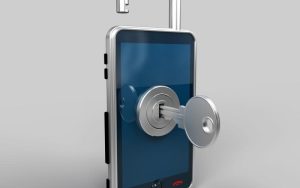 Now that we’ve talked about what mobile safety is, let’s talk about how you can practice it, specifically if you are a senior or have an elderly person in your life. Of course, it’s important for everyone to practice mobile safety, but for many seniors, mobile devices can increase the likelihood that they will experience things like fraud and scams—circumstances that seniors are particularly vulnerable to.
Now that we’ve talked about what mobile safety is, let’s talk about how you can practice it, specifically if you are a senior or have an elderly person in your life. Of course, it’s important for everyone to practice mobile safety, but for many seniors, mobile devices can increase the likelihood that they will experience things like fraud and scams—circumstances that seniors are particularly vulnerable to.
We are not saying that you shouldn’t use mobile devices; we just want to help you use them smartly and know how to protect yourself. Here are 5 tips to get you going in that direction:
- Remember that any mobile device (phone, tablet, e-reader) is a computer. You may be thinking about your mobile device like you think about a traditional phone that is connected to a “landline”. But, it’s not. A mobile device is an expensive tool that can store all kinds of data about you. So, protect it.

- Keep track of it.
- Put “locks” and passwords on it.
- Limit who can use it.
- Learn to recognize the modern-day prank or scam call. Just because you receive a message on your mobile device, doesn’t mean it comes from a trusted source. If you don’t recognize the phone number or email or sender, don’t necessarily trust it. And definitely don’t share personal information without talking to the person and establishing that they are a trusted connection with a valid purpose.
- Educate yourself. If computers, mobile devices and the Internet are intimidating and confusing to you, empower yourself. Take a class to familiarize yourself with basic methods of using these tools and the safety practices that will protect you. Or, ask a trusted friend or family member to show you how to use these tools safely and comfortably. Above all, if you don’t feel confident doing something on your mobile device or computer, don’t do it. Ask for help—you will save yourself a lot of frustration and perhaps grief, in the end.
- Be smart about public Wi-In most urban communities these days, you can go into any building or facility and access the Internet via Wi-Fi. That’s really helpful and also potentiallydangerous, if you don’t follow two simple rules:
- Use a Wi-Fi connection that requires a password. Most establishments will have a sign or require that you ask an employee for the password. This may seem inconvenient, but it ensures that you are operating on a protected network. However, that does not mean you are the only person on that network, so . . .
- Don’t do financial transactions on public Wi-Fi. As a rule, it’s not a good idea to do your banking, pay your bills or shop on a public Wi-Fi connection. You just don’t know who could be on that connection, snooping around for people’s personal information.
- Makesure the websites you conduct business on are secure. Most websites will be pretty clear about whether their pages are secure—especially if they are e-commerce sites (where you would make purchases). You can check by looking for a yellow padlock symbol and also looking at the page address or url.
 If it begins with “https” you should be in the clear. If it just says “http” you are not. Also, your bank and credit card or other financial institutions should require that you sign in with a username and password, before ever conducting business. They will also likely have other precautions in place, like a personal image that you select and a series of questions that you may be asked to answer at any time. Sure, all those steps may seem inconvenient and the information may be hard to keep track of, but remember these are safeguards that are put in place to protect you.
If it begins with “https” you should be in the clear. If it just says “http” you are not. Also, your bank and credit card or other financial institutions should require that you sign in with a username and password, before ever conducting business. They will also likely have other precautions in place, like a personal image that you select and a series of questions that you may be asked to answer at any time. Sure, all those steps may seem inconvenient and the information may be hard to keep track of, but remember these are safeguards that are put in place to protect you.
We hope that your mobile devices bring you a lot of fun, information, independence and enjoyment. Practice these 5 tips and they should!
 Now that we’ve talked about what mobile safety is, let’s talk about how you can practice it, specifically if you are a senior or have an elderly person in your life. Of course, it’s important for everyone to practice mobile safety, but for many seniors, mobile devices can increase the likelihood that they will experience things like fraud and scams—circumstances that seniors are particularly vulnerable to.
Now that we’ve talked about what mobile safety is, let’s talk about how you can practice it, specifically if you are a senior or have an elderly person in your life. Of course, it’s important for everyone to practice mobile safety, but for many seniors, mobile devices can increase the likelihood that they will experience things like fraud and scams—circumstances that seniors are particularly vulnerable to.
 If it begins with “https” you should be in the clear. If it just says “http” you are not. Also, your bank and credit card or other financial institutions should require that you sign in with a username and password, before ever conducting business. They will also likely have other precautions in place, like a personal image that you select and a series of questions that you may be asked to answer at any time. Sure, all those steps may seem inconvenient and the information may be hard to keep track of, but remember these are safeguards that are put in place to protect you.
If it begins with “https” you should be in the clear. If it just says “http” you are not. Also, your bank and credit card or other financial institutions should require that you sign in with a username and password, before ever conducting business. They will also likely have other precautions in place, like a personal image that you select and a series of questions that you may be asked to answer at any time. Sure, all those steps may seem inconvenient and the information may be hard to keep track of, but remember these are safeguards that are put in place to protect you.